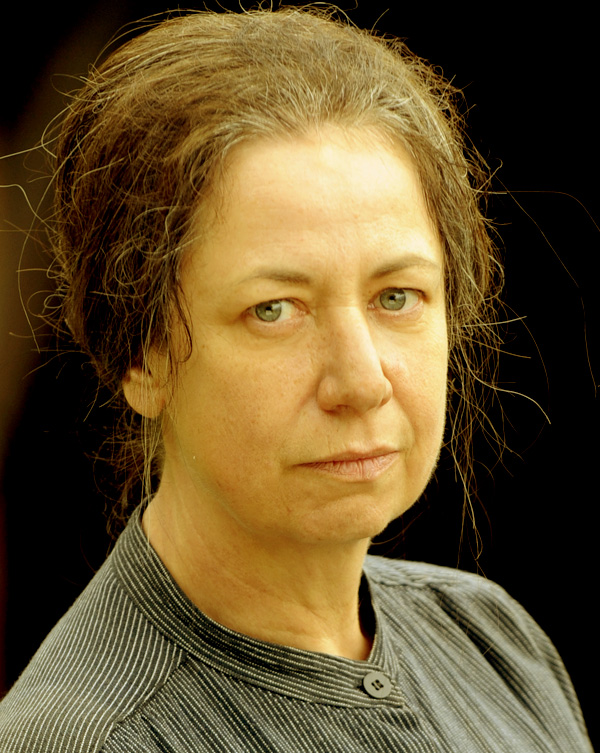Elisabeth Fritzl, a name that resonates with stories of unimaginable trauma and resilience, has become a symbol of survival against all odds. Her story captivates the world, shedding light on the complexities of human endurance in the face of horrific circumstances. In this article, we will delve into Elisabeth's life, her harrowing experiences, and the aftermath that continues to impact her life and those around her.
Born on April 18, 1966, in Amstetten, Austria, Elisabeth's early life was marked by a troubling family dynamic, one that would shape her future in ways she could never have anticipated. As we explore her biography, we will uncover the events leading up to her abduction, the years of captivity, and her eventual escape. We will also discuss the societal implications of her story and how it has raised awareness about domestic abuse and human trafficking.
Through a careful examination of Elisabeth Fritzl’s ordeal, we will provide insights into the psychological and emotional impacts of such experiences, emphasizing the importance of understanding and supporting survivors. This article aims to not only inform but also inspire compassion and awareness regarding issues that affect the lives of many individuals worldwide.
Table of Contents
- Biography
- Early Life of Elisabeth Fritzl
- The Abduction
- Years of Captivity
- The Escape
- Aftermath and Recovery
- Impact on Society
- Conclusion
Biography
| Full Name | Elisabeth Fritzl |
|---|---|
| Date of Birth | April 18, 1966 |
| Place of Birth | Amstetten, Austria |
| Parents | Josef Fritzl, Rosemarie Fritzl |
| Children | Kerstin, Stefan, Felix, and Alexander |
Early Life of Elisabeth Fritzl
Elisabeth Fritzl was born into a troubled household. Her father, Josef Fritzl, was a strict and domineering figure, while her mother, Rosemarie, was often preoccupied with her own issues. Elisabeth's childhood was characterized by a lack of affection and support, which set the stage for the traumatic events that would follow. As a teenager, Elisabeth began to rebel against her father's authoritarian control, seeking independence and freedom.
Family Dynamics
The family dynamics in the Fritzl household were dysfunctional, with Elisabeth often finding herself at odds with her father's oppressive nature. This environment contributed to her eventual estrangement and desire to escape her home life.
Teenage Rebellion
In her teenage years, Elisabeth sought solace outside her home, which led to her being more vulnerable to manipulation and control by others. This period of her life was pivotal, as it laid the groundwork for her eventual abduction.
The Abduction
In August 1984, at the age of 18, Elisabeth was lured into her father’s basement, under the guise of helping him with a project. What followed was a nightmare that would last for 24 years. Josef Fritzl had constructed a hidden cellar where he would imprison her, beginning a horrifying chapter in her life.
Initial Imprisonment
Upon her abduction, Elisabeth was subjected to psychological and physical abuse. Josef's manipulation tactics included threats and coercion, keeping her in a state of fear and submission. This initial period of imprisonment was crucial in establishing the traumatic foundation for her years in captivity.
Control and Manipulation
Josef Fritzl's control over Elisabeth extended beyond physical confinement. He manipulated her perception of reality, convincing her that no one was searching for her. This psychological torment was designed to ensure her compliance and silence.
Years of Captivity
Elisabeth spent 24 years in the underground cellar, giving birth to seven children, three of whom were raised in captivity while the others were taken away by Josef to be raised as his own. The conditions in which they lived were deplorable, and Elisabeth had to find ways to survive and care for her children.
Life in the Cellar
Living in a confined space, Elisabeth faced numerous challenges, including limited access to food, medical care, and basic hygiene. Despite these adversities, she remained resilient, doing her best to protect her children and provide them with a semblance of normalcy.
Motherhood in Captivity
Throughout her captivity, Elisabeth demonstrated remarkable strength as a mother. She nurtured her children, teaching them as best as she could under the circumstances. Her maternal instincts drove her to create a safe haven within the confines of their grim reality.
The Escape
Elisabeth's escape in April 2008 marked the beginning of her journey towards healing. After years of enduring unimaginable suffering, she finally found the courage to seek help. She managed to convince Josef to allow her to take one of her children to the hospital, where she ultimately revealed her identity and the truth of her captivity.
Seeking Help
Elisabeth's decision to seek medical attention was a pivotal moment in her life. It was her opportunity to escape the clutches of her abuser and reclaim her freedom. The medical staff, upon learning her story, acted swiftly to ensure her safety.
Legal Consequences for Josef Fritzl
Josef Fritzl was arrested shortly after Elisabeth's escape, facing multiple charges, including kidnapping, rape, and incest. His trial drew international attention, highlighting the horrors of domestic abuse and the importance of supporting survivors.
Aftermath and Recovery
The aftermath of Elisabeth’s escape was both challenging and transformative. She faced the daunting task of rebuilding her life and that of her children in a world that had changed dramatically during their years of captivity.
Psychological Impact
Elisabeth's experience left deep psychological scars. She underwent therapy to address the trauma and begin the healing process. Support from mental health professionals was crucial in helping her navigate the complexities of her emotions and experiences.
Reintegration into Society
Reintegrating into society posed its own set of challenges for Elisabeth and her children. The media scrutiny and public attention made the process even more difficult, as they sought to find a sense of normalcy in their lives.
Impact on Society
Elisabeth Fritzl's story has had a profound impact on society, raising awareness about the issues of domestic abuse, human trafficking, and the importance of supporting survivors. Her ordeal has prompted discussions about the need for systemic changes to protect vulnerable individuals and ensure that such atrocities do not occur again.
Raising Awareness
Elisabeth’s case has become a catalyst for conversations around the necessity of education and prevention programs aimed at recognizing the signs of abuse and providing resources for those in need. Organizations have emerged to support survivors and advocate for legislative changes.
Support Systems for Survivors
The importance of establishing support systems for survivors cannot be overstated. Elisabeth's story has highlighted the need for comprehensive services that address the psychological, emotional, and physical needs of individuals who have endured similar traumas.
Conclusion
In conclusion, Elisabeth Fritzl's harrowing journey is a testament to the resilience of the human spirit. Her story serves as a reminder of the importance of compassion, understanding, and advocacy for those affected by abuse. By sharing her experience, Elisabeth has inspired action and awareness, encouraging society to take a stand against domestic violence and support survivors.
We invite you to share your thoughts in the comments below, spread awareness about this crucial issue, and continue reading articles that aim to shed light on the experiences of survivors and the importance of creating a safer world for everyone.
In closing, we hope that Elisabeth's journey inspires you to engage in conversations about abuse and resilience. Remember, no one should suffer in silence, and together we can make a difference.




